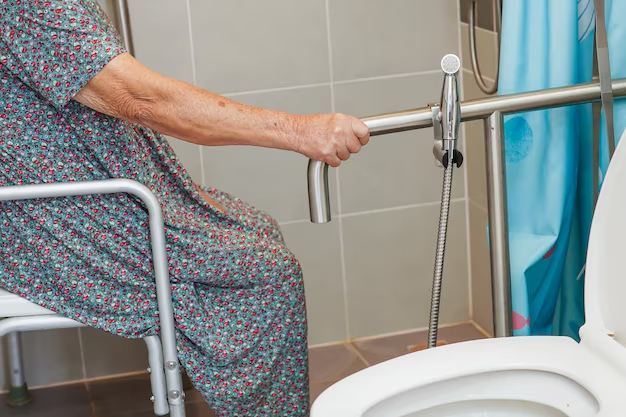Your Guide to How To Treat Urinary Incontinence
What You Get:
Free Guide
Free, helpful information about Incontinence FAQ and related How To Treat Urinary Incontinence topics.
Helpful Information
Get clear and easy-to-understand details about How To Treat Urinary Incontinence topics and resources.
Personalized Offers
Answer a few optional questions to receive offers or information related to Incontinence FAQ. The survey is optional and not required to access your free guide.
Discover Effective Ways to Manage Urinary Incontinence
Living with urinary incontinence can be challenging, but understanding treatment options can make a significant difference. Whether it's occasional leaks or more frequent issues, millions of individuals experience urinary incontinence. The good news? There are various treatments available to help you regain control and confidence.
Understanding Urinary Incontinence
Urinary incontinence is the involuntary leakage of urine. It can result from different causes such as weakened pelvic muscles, overactive bladder, or neurological conditions. Here's how you can effectively manage and treat this condition:
Lifestyle Modifications
Dietary Changes: Reducing caffeine and carbonated drinks as well as limiting spicy foods can decrease instances of incontinence. Maintaining a healthy weight can also positively impact bladder control.
Bladder Training: Establish a schedule to urinate every two to three hours, gradually increasing intervals to improve bladder endurance.
Pelvic Floor Exercises: Regularly practicing Kegel exercises strengthens pelvic muscles, which supports better bladder control.
Medical Interventions
Medications: Some medications can help reduce symptoms of an overactive bladder. Always consult with a healthcare provider to determine the right option for you.
Physical Therapy: Therapeutic interventions by specialized physiotherapists can immensely benefit muscle control and bladder function.
Surgical Options: In certain cases, minimal invasive procedures or surgeries can provide relief. These might include sling procedures or nerve stimulators, which are particularly useful when other treatments haven’t been effective.
Products and Devices
Absorbent Pads and Underwear: Available in many forms, these provide security and are discrete for daily use.
Pessaries: A device inserted into the vagina for women to provide support and prevent leakage.
Catheters: For more severe cases, intermittent catheterization can help in comfortably managing urinary retention.
Professional Advice and Support
Consulting a urologist or a continence specialist can tailor the treatment approach to your specific condition. Regular check-ups ensure treatments are effective and adjust regimens as necessary.
Bridging Health with Financial Support
Investing in your health isn't just about treatments and exercises. Here’s how strategic financial decisions can also contribute significantly to managing incontinence:
Government and Financial Aid Programs
Health Grants: Many government programs offer health grants and subsidies to alleviate costs associated with medical treatments, including urinary incontinence management.
Insurance Solutions: Check if your health insurance covers incontinence treatments or products, which can ease the burden on your budget.
Educational Opportunities: Attend workshops or online seminars offered by healthcare organizations for more insights on managing incontinence efficiently.
Tax Relief: In some regions, incontinence products may be tax-deductible as part of medical expenses. Consult a tax advisor to explore this avenue.
Finding the right balance between effective treatment and financial support can liberate you from unnecessary stress, allowing you to concentrate on your health and well-being.
🔍 Key Financial Resources and Solutions:
- 💡 Health Grants: Explore local healthcare programs for grants.
- 🛡️ Insurance: Review your policy for coverage on incontinence care.
- 🎓 Educational Seminars: Utilize community or online health workshops.
- 🧾 Tax Relief: Look into deductible medical expenses for incontinence products.
Navigating urinary incontinence does not have to be a daunting journey. By combining the right treatments with savvy financial choices, you can manage this condition confidently and live a fulfilling life.
What You Get:
Free Incontinence FAQ Guide
Free, helpful information about How To Treat Urinary Incontinence and related resources.

Helpful Information
Get clear, easy-to-understand details about How To Treat Urinary Incontinence topics.

Optional Personalized Offers
Answer a few optional questions to see offers or information related to Incontinence FAQ. Participation is not required to get your free guide.


Discover More
- a Patient You Are Caring For Uses Incontinence Briefs
- Are Incontinence Products Tax Deductible
- Are Incontinence Supplies Covered By Medicare
- Are Incontinence Supplies Tax Deductible
- Can a Bladder Infection Cause Urinary Incontinence
- Can a Kidney Stone Cause Incontinence
- Can a Urinary Tract Infection Cause Incontinence
- Can a Uti Cause Incontinence
- Can Constipation Cause Incontinence
- Can Constipation Cause Urinary Incontinence
